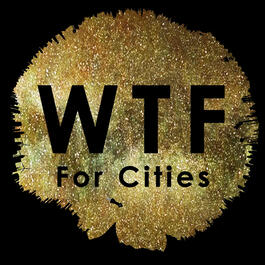
345R_What do people want in a smart city? Exploring the stakeholders’ opinions, priorities, and perceived barriers in a medium-sized city in the United States (research summary)
Are you interested in stakeholder opinions for smart cities? Summary of the article titled What do people want in a smart city? Exploring the stakeholders’ opinions, priorities, and perceived barriers in a medium-sized city in the United States from 2021, by Cristina Del-Real, Chandra Ward, and Mina Sartipi, published in the International Journal of Urban Sciences. This is a great preparation to our next interview with Mina Sartipi in episode 346 talking about smart cities as urban evolution and proactive urban management. Since we are investigating the future of cities, I thought it would be interesting to see how stakeholders see the smart city concept. This article reveals that improving quality of life and environmental sustainability rather than technological solutions are required of smart cities, with transparency and social inclusion. Find the article through this link. Abstract: Many cities in the United States are pursuing agendas to implement ICT-based solutions to tackle urban challenges, thus achieving the ‘smart city’ label. While the discussion on this urban development paradigm has revolved around the intensive use of technologies, the academic literature increasingly calls for shifting the focus to the people living in the cities. This paper argues that to achieve a people-centred smart city, cities should include the perspectives of all the local stakeholders. Under this assumption, this paper provides the views of the local stakeholders in a medium-sized city in Tennessee, Chattanooga. Particularly, this study explores their perceived smart city concept, the ethical standards that should guide smart city projects, the desired future projects in their community, and the barriers to implementing them. The data was collected using a combination of participatory budgeting, five focus groups, and twenty-eight interviews with city dwellers, entrepreneurs, university faculty, non-profit members, and government officials. The results suggest that, far from the image of a highly technological city, the stakeholders envision a city dedicated to improving the quality of life and environmental sustainability. Furthermore, to achieve this smart city, the projects need to be based on full transparency and the promotion of social inclusion. In contrast to the dominant trend towards the privatization of urban space, this study finds that the stakeholders prefer public based smart city projects such as ICTbased public transport services. However, its successful implementation will have to overcome the barriers caused by funding constraints, public acceptance, and political interests. Cities may use the results of this study to design more responsible smart city projects that strike an optimal point between citizen engagement and technological applications and innovations while supporting all stakeholders’ needs. Connecting episodes you might be interested in:No.287R - Essay: On the smart city; Or a ‘manifesto’ for smart citizens insteadNo.288 - Interview with Dan Hill about smart cities You can find the transcript through this link. What was the most interesting part for you? What questions did arise for you? Let me know on Twitter @WTF4Cities or on the wtf4cities.com website where the shownotes are also available. I hope this was an interesting episode for you and thanks for tuning in.Episode generated with Descript assistance (affiliate link). Music by Lesfm from Pixabay
From "What is The Future for Cities?"


Comments
Add comment Feedback